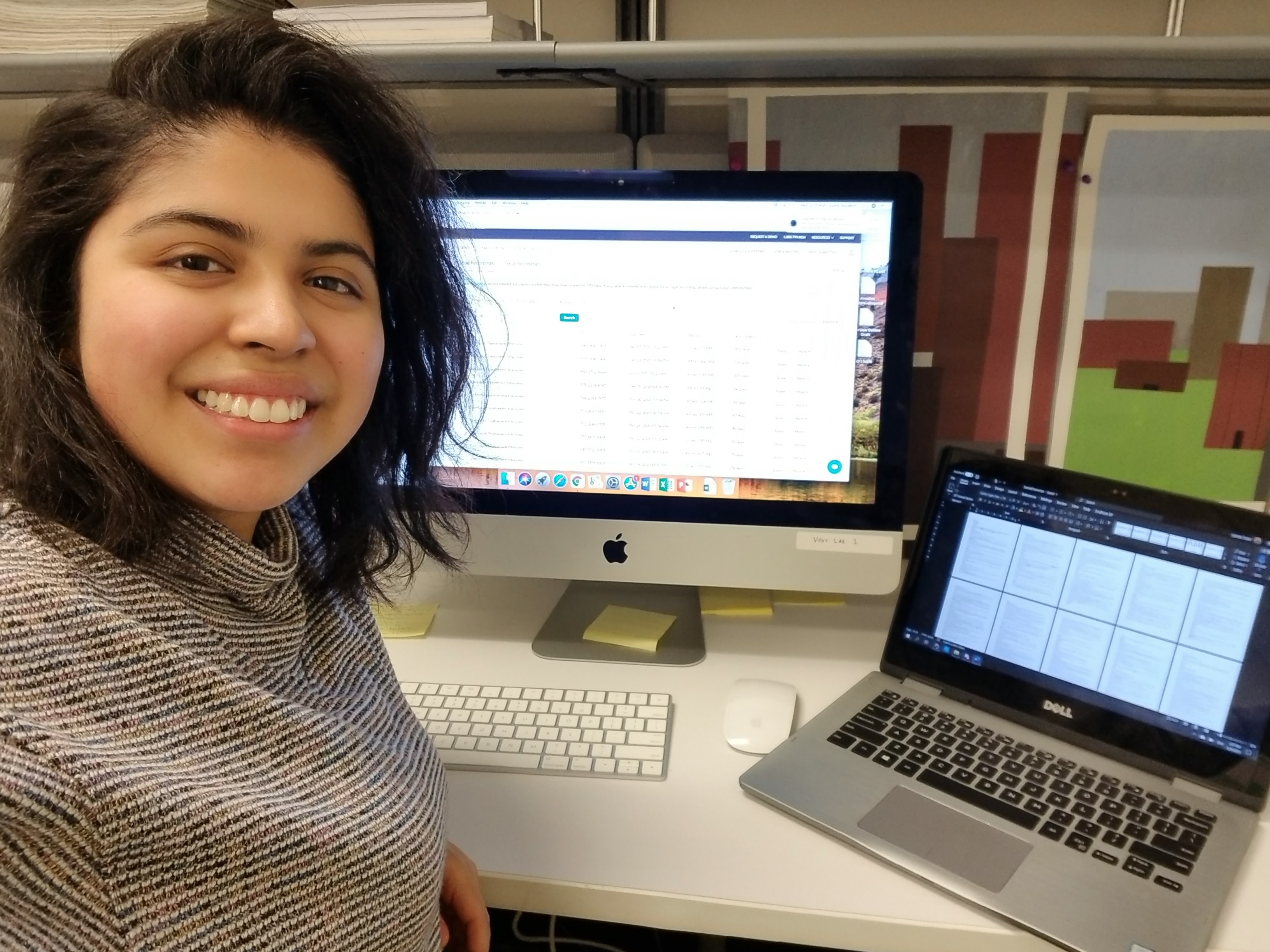 As a McNair Scholar and environmental science major, Camila Cortez developed a passion in urban forestry working in the Lab for Urban Forestry in the Anthropocene. As part of her thesis project, Cortez interviewed TreeKeepers urban forestry volunteers with the goal of finding ways to enhance the program. (Image courtesy of Camila Cortez)
As a McNair Scholar and environmental science major, Camila Cortez developed a passion in urban forestry working in the Lab for Urban Forestry in the Anthropocene. As part of her thesis project, Cortez interviewed TreeKeepers urban forestry volunteers with the goal of finding ways to enhance the program. (Image courtesy of Camila Cortez)
Many first-year college students worry about their chosen major or choosing a major if they aren't yet sure about what they want to study when they enter college. Senior environmental science major and McNair Scholar Camila Cortez had the same worries as a freshman, and although the challenge of finding a field of study that she loves once haunted her, she now reflects back on her exploration of different fields fondly.“We forget, or maybe don't quite understand, that our lives are not defined by the major we choose in college," Cortez says.
In fact, only a small percentage of students know what they will study when they enter college, and then stick with that major through their undergraduate course of study.
“Sometimes students discover that an area they thought they would love majoring in isn't quite what they expected, and so they want to spend some time thinking through their decision," says Stephanie Halaska, director of the Office for Academic Advising Support. “There's no better place than a university to start the process of exploring academic programs and considering how they align with your interests and skills."
Cortez explored a variety of majors and minors that interested her. She entered college as a health sciences major, only to pivot to art and religion, then to English, and when she was a junior, finally decided on a Bachelor of Science in environmental science.
As she was considering her major and interests, she took action by emailing people in programs that she was interested in, speaking to graduate students to hear their experiences, and establishing relationships with professors.
Her path to the McNair Scholars Program, a federal TRiO program that immerses participants in a specialized curriculum and set of activities to pursue doctoral studies and a career of university-level teaching and research, started with encouragement from a friend.
“I didn't want to apply initially because I thought my GPA was too low," she shares. “With my friend's guidance, I contacted a McNair advisor, who helped me understand the path forward." She worked hard to improve her GPA and ultimately was accepted into the program.
Now, Cortez has some major accomplishments under her belt. She found her passion in urban forestry working in the Lab for Urban Forestry in the Anthropocene with Assistant Professor Jess Vogt in the environmental science and studies department.
“Dr. Vogt helped me identify the skills I possessed," Cortez says. “She pointed out my communication skills and recruited me for my thesis project, TreeKeepers Research, where I am conducting and analyzing interviews."
Her strong communication skills helped her interview TreeKeepers Research urban forestry volunteers with the goal of finding ways to enhance the program.
“Camila has excellent attention to detail, intellectual curiosity, independence and teamwork skills, and can rapidly synthesize information and data from multiple types of sources. All of these qualities make her a strong budding researcher," Vogt says. “Especially for the qualitative, interview-based research she's been working on most recently, Camila's ability to talk with her research subjects and engage in active listening is crucial."
Cortez is also working on a tree conservation ecology project with other DePaul students in collaboration with The Morton Arboretum and their partners in Mexico.
“Don't just assume that you can't do things because you are scared you won't be good enough or that you don't have the background," Cortez says. “I reached out to my professors and peers to make connections and now I'm really happy with where I am."
Cortez has remained resilient in her academic journey at DePaul and has become successful in spite of her earlier struggles. Now, she is looking forward to publishing her work, while waiting to find out where she will attend graduate school to pursue advanced studies.